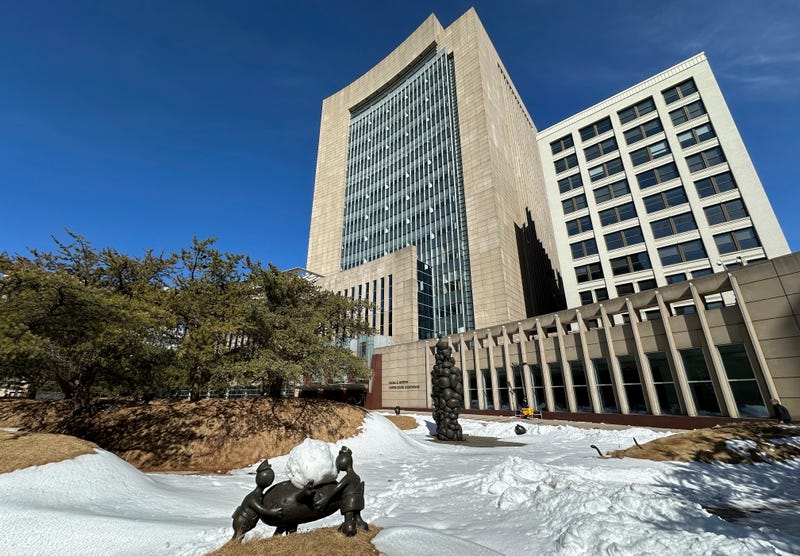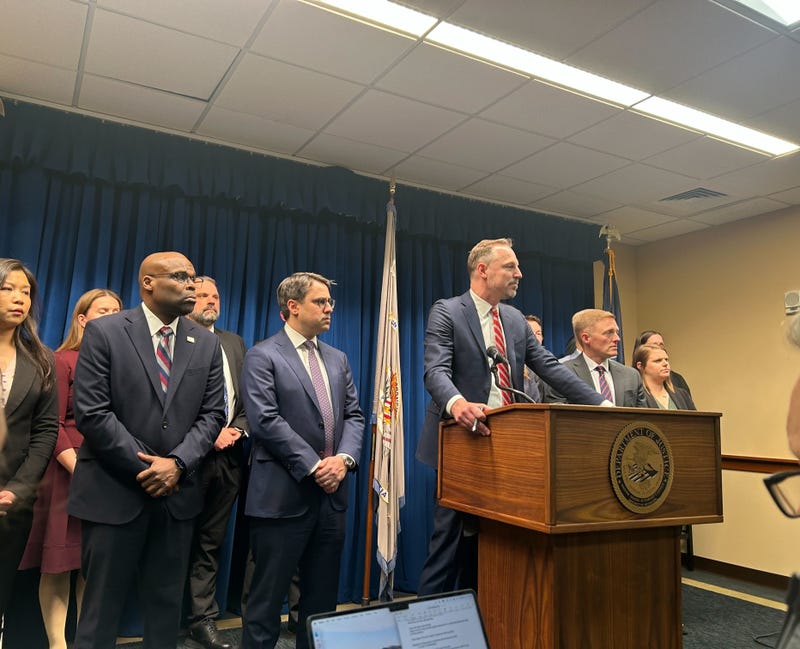
Guilty on all counts. After only five or so hours of deliberations a verdict is reached in the trial of the ringleader and a co-conspirator in the Feeding Our Future fraud pandemic fraud scandal.
Defendants Aimee Bock and Salim Ahmed Said were charged with 28 criminal accounts, accused of orchestrating a $250 million scheme to defraud the federal government of funds that were meant to feed children in need during the COVID pandemic.
The trial has been been going on for more than five weeks. The judge has granted the prosecution's request that both be taken into custody and held until their sentencing at a later date.
Bock — the founder of Feeding our Future, the group that prosecutors say was at the heart of the plot — was one of 70 defendants charged in the overall case, said to be one of the country’s largest frauds against COVID-19 relief programs. Despite saying she was innocent of the charges, prosecutors said she was part of every part of the scheme.
"She cut every single check, all $240 million worth of checks to every defendant in this case," says the U.S. Attorney's Office's lead prosecutor Joseph Thompson. "She was involved in taking kickbacks. Witness after witness testified to her role in the scheme."
The Minnesota case has also drawn attention for an attempt to bribe a juror in an earlier trial and witness tampering in Bock’s trial, which began last month. Thirty-seven defendants have already pleaded guilty, while five were convicted in a group of defendants who were tried last year.
"The fact that they returned a verdict so quickly after such a long trial think speaks volumes as to the the job the team did and frankly the amount of evidence against the defendants and how how awful their fraud scheme was," explained Thompson.
The jury also convicted a co-defendant, Said, the owner of the now-defunct Safari Restaurant in Minneapolis.
Bock and Said were charged with multiple counts involving conspiracy, wire fraud and bribery. Said was also charged with money laundering. Bock allegedly pocketed nearly $2 million, while Said was accused of taking around $5 million. They both maintained their innocence and testified at trial.
"During COVID, while so many were trying to be helpers, Bock and Said were thieves," Acting U.S. Attorney Lisa Kirkpatrick. "They used a time of crisis as their golden opportunity to enrich themselves and their criminal partners."
In closing arguments, prosecutors said the evidence showed that Bock and Said exploited the chaos of the early days of the the pandemic by submitting falsified paperwork to enrich themselves and failed to provide anywhere near as many meals to needy children as they claimed.
Defense attorneys did not dispute that there was massive fraud but insisted that their clients were not responsible for it.
Bock’s attorney said she was deceived by dishonest people and tried to cut them off whenever she suspected fraud. Said’s attorney blamed his client’s business partner.

Federal prosecutors alleged that the conspiracy revolved around Feeding Our Future and another small nonprofit that were approved as sponsors of the Federal Child Nutrition Program before the pandemic.
They dramatically grew as the pandemic took hold, and Feeding Our Future went from receiving and disbursing $3.4 million in federal funds in 2019 to nearly $200 million in 2021. Food sites it sponsored falsely claimed to be serving thousands of children daily, prosecutors allege.
Besides fraudulently obtaining and disbursing more than $240 million in federal funds, prosecutors say, Bock and other Feeding Our Future employees solicited and received bribes and kickbacks from other participants connected with the scheme.
The defendants are being tried in several groups. The first trial was marred by an alleged attempt by some defendants and people linked with them to bribe a juror with a bag of $120,000 in cash. That juror went straight to police. That led to tighter security for Bock’s trial and additional precautions ordered by U.S. District Judge Nancy Brasel.
Despite all that, an allegation of witness tampering surfaced midway through the proceedings. A defendant scheduled for trial in August approached a government witness who was due to testify against Bock and Said and asked to speak with him in a courthouse bathroom. That witness declined and instead told his lawyer, who informed prosecutors.
That defendant, Abdinasir Abshir, 32, of Lakeville, soon agreed to plead guilty to a wire fraud charge and to have his tampering attempt factored into a longer sentencing recommendation, which isn’t binding on the judge.
The Associated Press contributed to this story.
